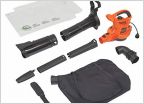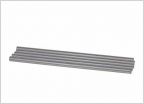-
Welcome to Tacoma World!
You are currently viewing as a guest! To get full-access, you need to register for a FREE account.
As a registered member, you’ll be able to:- Participate in all Tacoma discussion topics
- Communicate privately with other Tacoma owners from around the world
- Post your own photos in our Members Gallery
- Access all special features of the site
Beekeeping
Discussion in 'Off-Topic Discussion' started by Boone, May 20, 2013.
Page 2 of 3
Page 2 of 3


 Acorns - how to pick them up by the ton
Acorns - how to pick them up by the ton Pulled the plug on Satellite Provider. San Diego referral for TV Antenna Install?
Pulled the plug on Satellite Provider. San Diego referral for TV Antenna Install? TW does it again!
TW does it again! Dual Monitors w/ Extended Desktop
Dual Monitors w/ Extended Desktop Adding a capacitor to a fuse for initial loading?
Adding a capacitor to a fuse for initial loading? How can I mill down high speed steel?
How can I mill down high speed steel?




























































